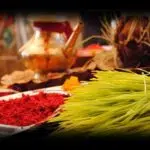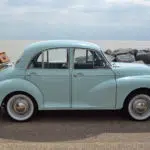Guinea Independence Day takes place on October 2 every year. There is no better way to honor its independence than by highlighting its rich traditions and culture. The country was under French rule for years until its president had the foresight to make a decision that would change its history and set it apart as an independent nation. This day is all about Guinea, its people, history, and future.
History of Guinea Independence Day
Today, 61 countries are still under colonial rule. War and conflict are also reasons why some countries have not yet been able to gain independence. However, Guinea is an exception. It has had a very tumultuous history under the French colonial rule but became free and sovereign.
The country was a part of the former French Colonial Empire for over a century before becoming a ‘protectorate’ in August 1849. Being a ‘protectorate’ means that it was still controlled and protected by another state. It wasn’t until 1904 that Guinea became a constituent territory of French West Africa. It would remain under a foreign state until 1958 when it became independent due to the implosion of the French Fourth Republic. Independence Day is celebrated with much pride and is a national holiday in Guinea.
A significant decision was to be made when France’s then-acting President, Charles de Gaulle, gave the French colonies a choice between being given greater autonomy in a new French Community or immediate independence. The then Secretary-General of the Guinea Democratic Party, Ahmed Sékou Touré, and his party opted for the latter. The French quickly withdrew, and Guinea proudly declared itself a sovereign and independent republic in 1958.
Guinea has been through many trials, tribulations, and political struggles yet remains an independent country brimming with possibility and hope.
Guinea Independence Day timeline
In the late 1720s, the land that would be known as Guinea is declared an Islamic state by Fulani Muslims.
Land belonging to a collection of African empires is usurped and colonized by France and is named French Guinea; it becomes a part of French West Africa later on.
Guinea becomes an independent state following the withdrawal of France.
Guinea survives a Portuguese raid meant to capture Ahmed Sékou Touré.
After a bloodless coup, Lansana Conté becomes the President of Guinea and releases 250 political prisoners.
Guinea Independence Day FAQs
Why are there three Guineas in Africa?
Guinea is a West African country named after the Gulf of Guinea. Many European colonies added their names, such as French Guinea, Spanish Guinea, Portuguese Guinea, German Guinea, and so on. Following independence, a few retained the original name.
What does the name Guinea mean?
Guinea is an English term derived from the Portuguese word ‘Guiné,’ which first appeared in the mid-15th century to refer to the lands inhabited by the ‘Guineus,’ a generic term for the black African people belonging to the Senegal River.
What languages do they speak in Guinea?
French is the predominant language in Guinea but other commonly spoken languages include Arabic, English, Fula, and Malinké.
How to Observe Guinea Independence Day
Put on your tribal garb
If you’re Guinean, the most honorable way to celebrate your heritage and independence is to pay homage to your tribe. The Guinean tribes include the Fulani, Malinke (also known as Mandinka), Soussou, Kpelle, Kissi, and Toma.
Cook traditional food
You can cook the national dish of Guinea called ‘poulet yass’ which consists of onions and meat. Also try other traditional dishes like foufou, cassava leaf sauce with rice, rice with peanut sauce, and potato leaf stew.
Read the history
Guinea is a country that has been and continues to be subjected to political difficulties, militia activity, and cultural divides, yet has managed to uphold its independence and rich culture through the years.
5 Facts You Didn’t Know About Guinea
Protected nature and wildlife
Guinea's natural ecosystem is protected by 93,047 square kilometers of protected wildlife and forests.
The famous beaches
Famous beaches such as Sobane beach and Bel Air beach can be found along Guinea’s 200-mile coastline which faces the Atlantic Ocean.
Guinea is resource-rich
The country has one-quarter of the world’s bauxite reserves and more than 1.8 billion metric tons of high-quality iron ore.
Africa’s largest mosque
Guinea is an Islamic country, with the Grand Mosque in Conakry dating back to 1982.
The air is polluted
As per the latest research, Guinea has the world’s fourth-highest fatality rate due to air pollution.
Why Guinea Independence Day is Important
Independence is important
If a nation is managed well after independence, it can have a great future. Despite its tumultuous political background and current affairs, breaking free from colonial rule has given Guinea its own identity.
Communities are thriving
When we celebrate independence, we honor a country’s struggles, growth, and success. The Guinean people are strong, culturally rich, and are a part of various communities that support one another.
It pays homage to the history of a nation
Guinea is unique in that it is still struggling for peace, despite a shattered political structure and several government inefficiencies. It is important to celebrate their independence and the hope that they have as a country to establish peace and development over time.
Guinea Independence Day dates
| Year | Date | Day |
|---|---|---|
| 2025 | October 2 | Thursday |
| 2026 | October 2 | Friday |
| 2027 | October 2 | Saturday |
| 2028 | October 2 | Monday |
| 2029 | October 2 | Tuesday |













